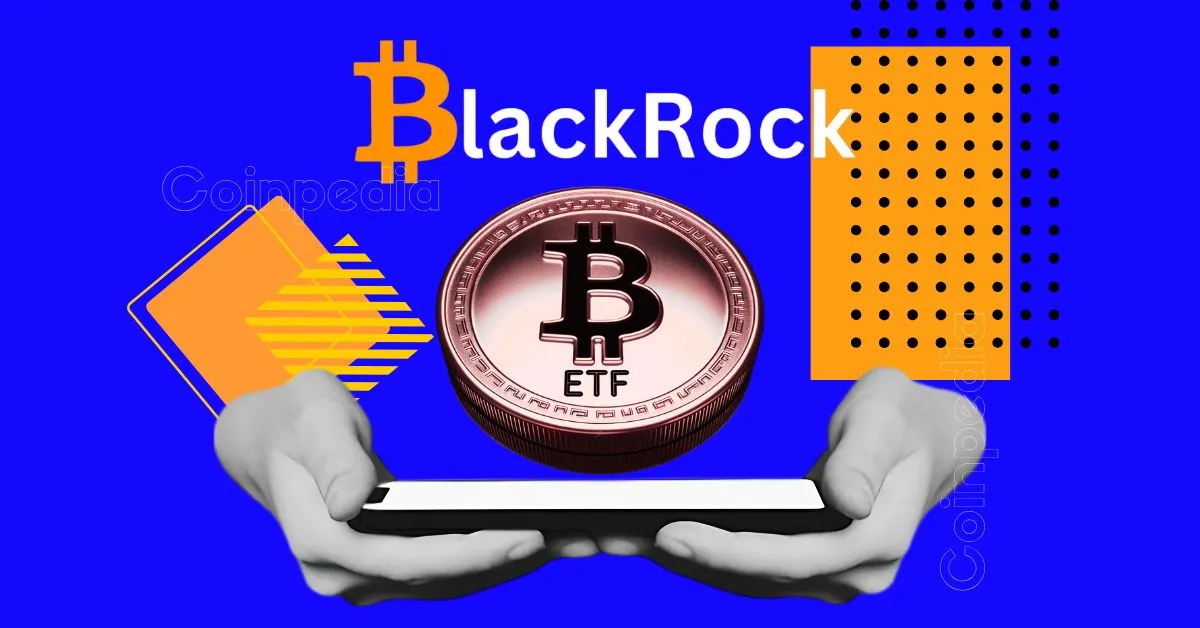BlackRock’s iShares Bitcoin Trust (IBIT) has emerged as a titan in the cryptocurrency investment landscape, amassing over 700,000 Bitcoin in a remarkably short period. This achievement is not merely a numerical milestone but a testament to the growing institutional acceptance of Bitcoin as a legitimate asset class. The rapid ascent of IBIT, from its launch in January 2024 to its current status as a dominant force in the Bitcoin ETF market, underscores a fundamental shift in how institutional investors perceive and engage with digital assets.
The meteoric rise of IBIT can be attributed to several key factors. Firstly, BlackRock’s reputation as the world’s largest asset manager lends unparalleled credibility to the Bitcoin ETF space. The firm’s rigorous risk management and regulatory compliance provide investors with a sense of security and confidence, making IBIT an attractive option for those seeking exposure to Bitcoin without the complexities of direct ownership. Secondly, the ease of access offered by ETFs is a significant draw for institutional investors. ETFs provide a familiar and regulated investment vehicle, which is particularly appealing to those with internal mandates or compliance requirements that prevent direct Bitcoin holdings. Lastly, the approval of spot Bitcoin ETFs by the U.S. Securities and Exchange Commission (SEC) marked a pivotal moment in the perception of Bitcoin as a legitimate asset class. This regulatory green light has paved the way for increased institutional adoption, further fueling IBIT’s growth.
IBIT’s dominance in the U.S. spot Bitcoin ETF landscape is evident in its holdings, which represent approximately 55% of the total Bitcoin held by these ETFs. This significant market share not only solidifies IBIT’s position as the leading Bitcoin ETF but also highlights the growing demand for Bitcoin exposure among institutional investors. The accumulation of such a large Bitcoin position has implications for the overall supply dynamics of the cryptocurrency. With IBIT consistently absorbing a significant portion of newly mined Bitcoin, it puts upward pressure on the price and reduces the available supply for other market participants. This dynamic could further accelerate Bitcoin’s price appreciation in the long run, benefiting both IBIT and its investors.
Beyond its impressive AUM and Bitcoin holdings, IBIT is also becoming a significant revenue driver for BlackRock. The ETF’s higher fee structure, compared to BlackRock’s flagship S&P 500 fund (IVV), allows it to generate substantial revenue despite not having as much in assets under management. This demonstrates the profitability of Bitcoin ETFs and highlights the growing demand for these products among investors. The revenue generation from IBIT is a testament to the power of innovation in the financial industry. By creating a product that caters to the specific needs and preferences of institutional investors, BlackRock has unlocked a new revenue stream and solidified its position as a leader in the ETF market.
One of the most intriguing aspects of BlackRock’s embrace of Bitcoin is the transformation of its CEO, Larry Fink. Initially cautious about Bitcoin, Fink has become increasingly optimistic about its potential. This shift in attitude reflects the growing acceptance of Bitcoin within the traditional financial establishment. Fink’s newfound enthusiasm for Bitcoin is not merely a PR stunt; it is based on a deep understanding of the underlying technology and the growing demand for Bitcoin among BlackRock’s clients. His public support for Bitcoin has further legitimized the asset class and encouraged other institutional investors to explore the space. This endorsement from a prominent figure in traditional finance has a ripple effect, increasing confidence and reducing the perceived risks associated with Bitcoin investments.
The impact of IBIT’s massive Bitcoin holdings on the price and market dynamics of Bitcoin is profound. As IBIT continues to accumulate Bitcoin, it reduces the available supply on exchanges, creating scarcity and driving up the price. This dynamic is further amplified by the increasing institutional demand for Bitcoin, which is consistently outpacing miner supply. The long-term implications of IBIT’s dominance in the Bitcoin ETF market are significant. As more institutional investors allocate capital to Bitcoin through IBIT and other ETFs, the price of Bitcoin is likely to continue to rise. This could lead to a virtuous cycle, where rising prices attract even more investors, further fueling the rally. The psychological impact of IBIT’s success is particularly important in the volatile world of cryptocurrency. By providing a sense of stability and legitimacy, IBIT can help to reduce fear and uncertainty, making Bitcoin a more attractive investment for a wider range of investors.
BlackRock’s IBIT is more than just a Bitcoin ETF; it is a symbol of the evolving relationship between traditional finance and the world of cryptocurrency. Its rapid growth and dominance in the market demonstrate the increasing institutional acceptance of Bitcoin as a legitimate asset class. As IBIT continues to accumulate Bitcoin and attract new investors, it will play a key role in shaping the future of finance. The story of IBIT and its accumulation of over 700,000 Bitcoin is a powerful narrative about the inevitable shift in the financial world. It’s a story of traditional institutions embracing disruptive technologies, of skepticism giving way to belief, and of a future where Bitcoin plays an increasingly prominent role in the global economy. The sheer volume of Bitcoin now under BlackRock’s management speaks volumes about the asset’s growing legitimacy and its potential to reshape the financial landscape.

